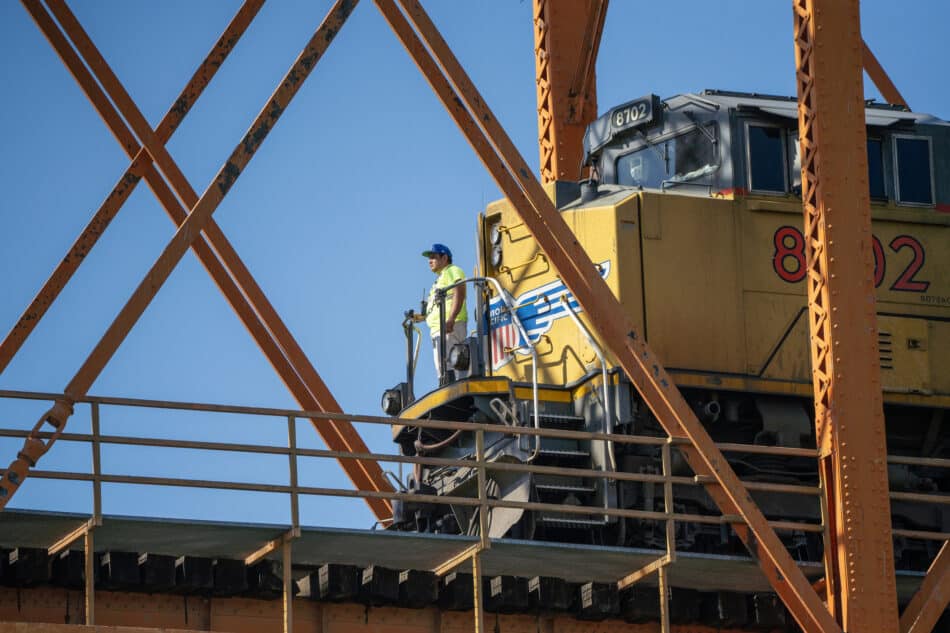Texas Rail Ports Closures Hit Economy

U.S. Customs and Border Protection has closed two critical rail ports in Texas in an effort to stem a surge of migration, according to CNBC.
What’s going on: Immigration authorities “announced rail operations would be halted at El Paso and Eagle Pass, Texas, beginning Monday in light of the surge of migrants crossing the border.”
- Officials said this temporary suspension of operations will enable the government to redirect personnel to assist Border Patrol with taking migrants into custody.
- “Collectively both railroads operate 24 trains daily at these crossings.”
Why it’s important: More than $200 million in goods, wages and transportation are lost each day the El Paso and Eagle Pass rail lines remain shuttered, according to Union Pacific.
- The closures are affecting international commerce, with mounting impacts on the agricultural, food, automotive, consumer goods and industrial commodity sectors, among others.
- A total of nearly 10,000 rail cars are being held on both sides of the U.S.–Mexico border, according to Union Pacific.
- “According to Bureau of Transportation Statistics data, El Paso and Eagle Pass accounted for $33.95 billion, or 35.8%, of all cross-border rail traffic from November 2022 – October 2023,” CNBC reports.
The backdrop: The developments come the same week Texas Gov. Greg Abbott “signed into law a measure giving state and local police authority to arrest and deport migrants caught crossing the border illegally,” according to The Wall Street Journal (subscription).
What we’re doing: The NAM is in communication with the White House, U.S. Customs and Border Protection and key Senate and House members on the issue, advocating for an immediate solution to the reopening of the rail ports.
- “Mexico is the United States’ largest trading partner, and enabling trade between the two countries is critical for North American economic competitiveness,” said NAM Director of Trade Facilitation Policy Ali Aafedt. “The NAM will continue to advocate for solutions that uphold our laws while also facilitating legitimate trade.”
